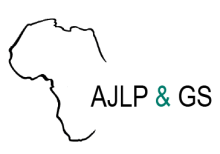Land Library
Welcome to the Land Portal Library. Explore our vast collection of open-access resources (over 74,000) including reports, journal articles, research papers, peer-reviewed publications, legal documents, videos and much more.
/ library resources
Showing items 1 through 9 of 43.Political Economy Analysis Of How Corruption Affects Climate Change Adaptation And Mitigation. A Case Study Of The Forest And Land Use Sectors Of Ghana
Forest conversion caused by subsistence or “basic needs populations†is difficult to track and measure. As the dynamics of these populations change over time, their carbon footprint impacts on natural resources also change.
In order for geospatial services to reach their full potential to benefit the people and the environment of the Amazon at multiple scales (regional, national, sub-national, community) by supporting communities in monitoring their territories and addressing the various challenges they face (such a
This article has the following objectives: 1) to identify the bottlenecks in the cocoa and palm oil value chains in the Ucayali region (Peru), so that their different actors and links can contribute to avoid deforestation, and 2) based on these bottlenecks, to identify the enabling conditions and
CONTEXT: The Greater Mekong Subregion has been undergoing rapid agricultural transformation over the last
decades, as traditional diverse subsistence-oriented agriculture is evolving towards intensified commercial
Tropical deforestation is estimated to cause about one-quarter of anthropogenic carbon emissions, the second largest source of greenhouse gas emissions after fossil fuel combustion.
Agricultural intensification and forest conservation are often seen as incompatible. Agricultural interventions can help boost food security for poor rural communities but in certain cases can exacerbate deforestation, known as the rebound effect.
Agri-environmental projects have been portrayed as tools for climate change adaptation and mitigation and to overcome processes of deforestation, soil erosion, issues of water availability, and biodiversity loss.
The strategies developed to promote deforestation-free, low- emission cocoa and oil palm value chains have been officially adopted by the regional government of Ucayali to guide public and private stakeholders towards improved sectorial and agricultural development.


